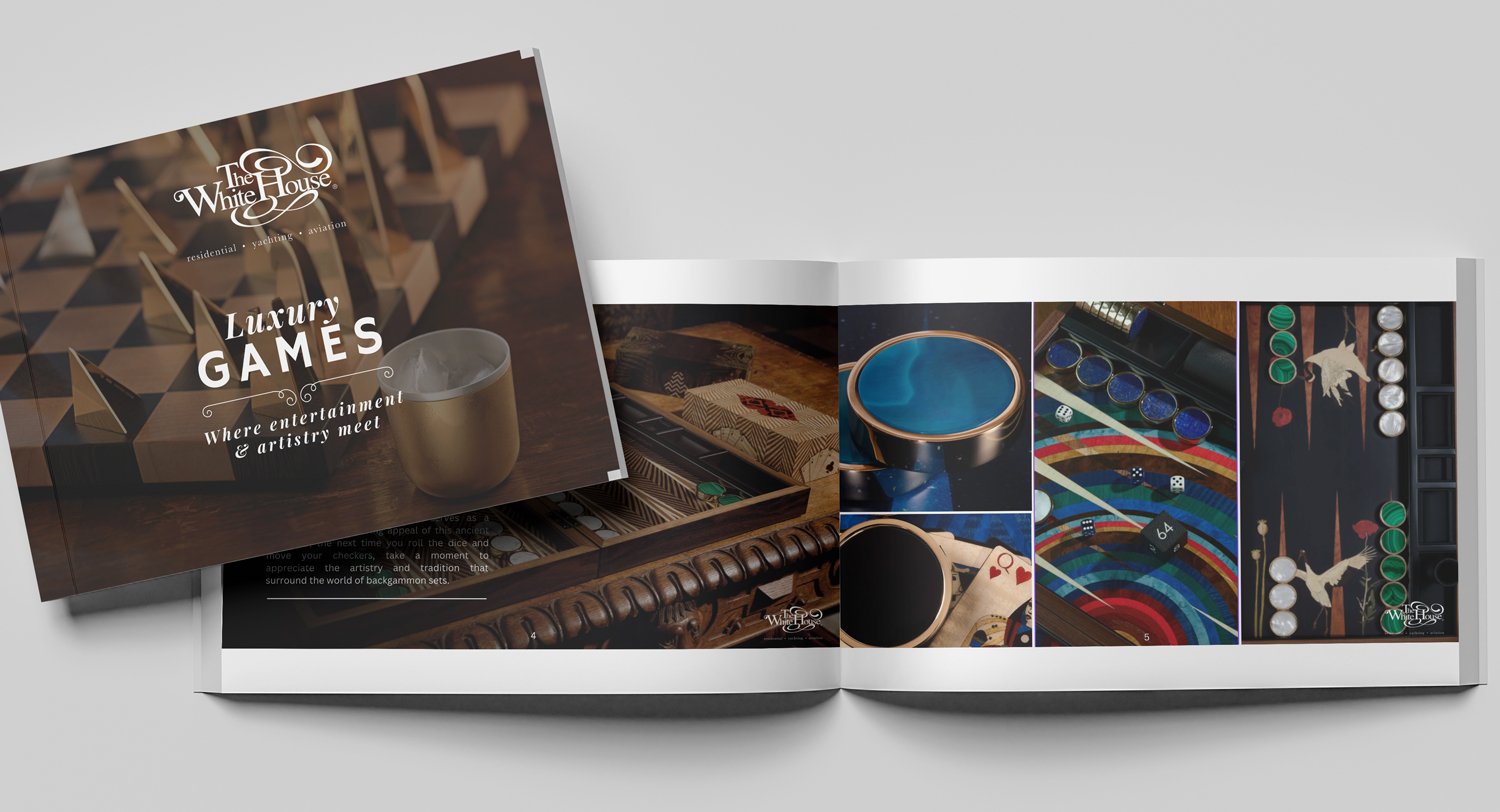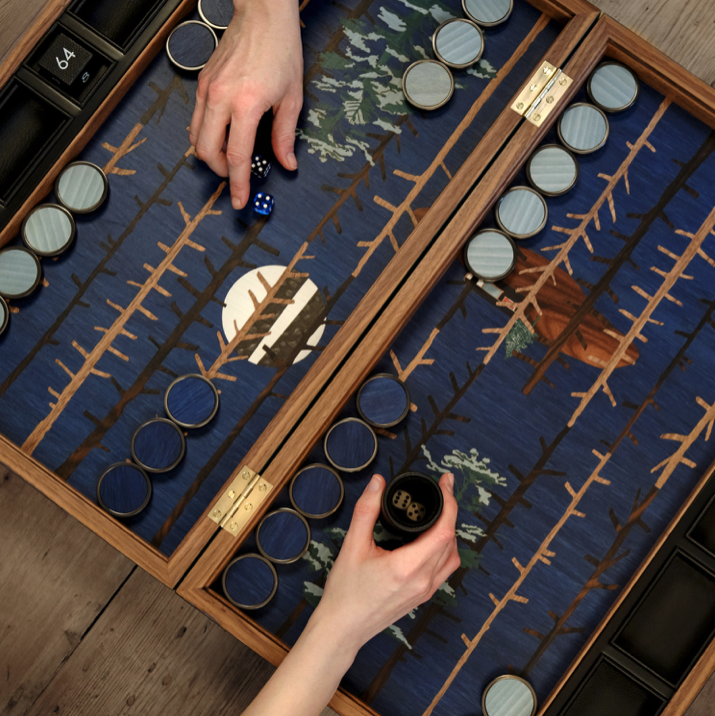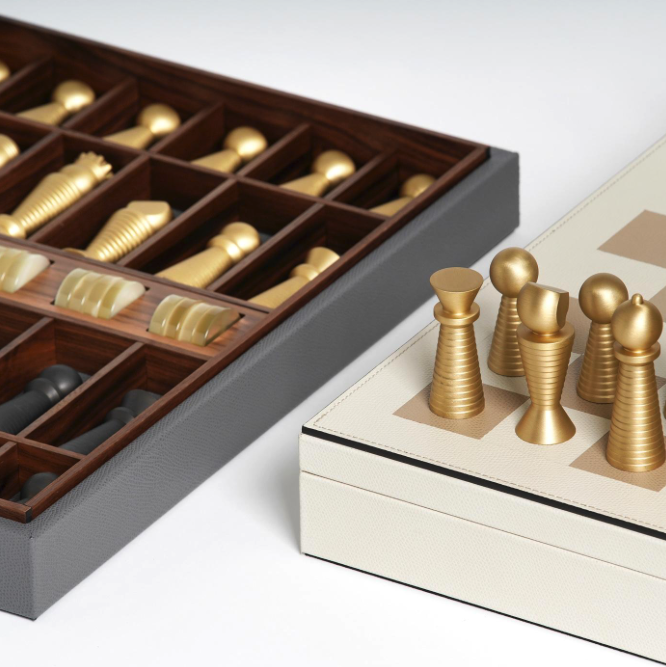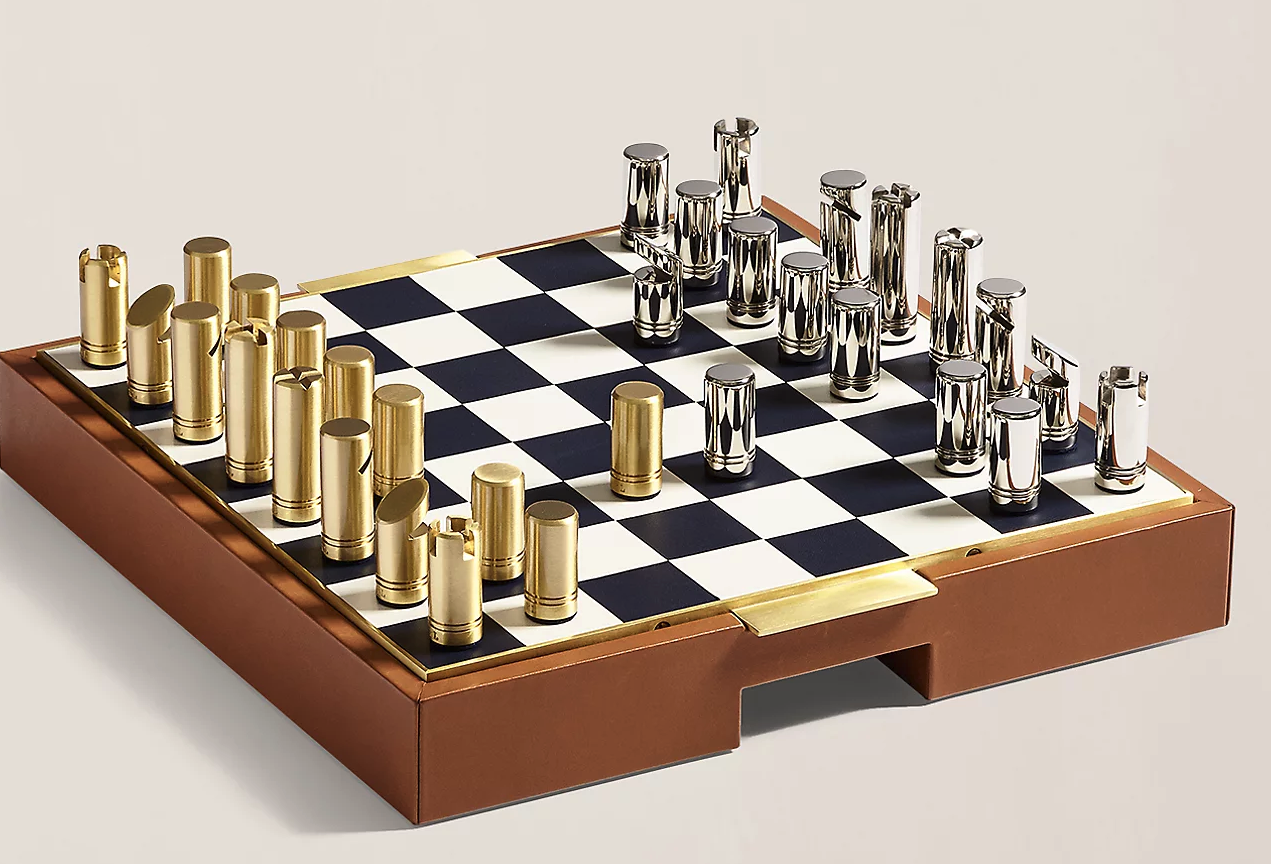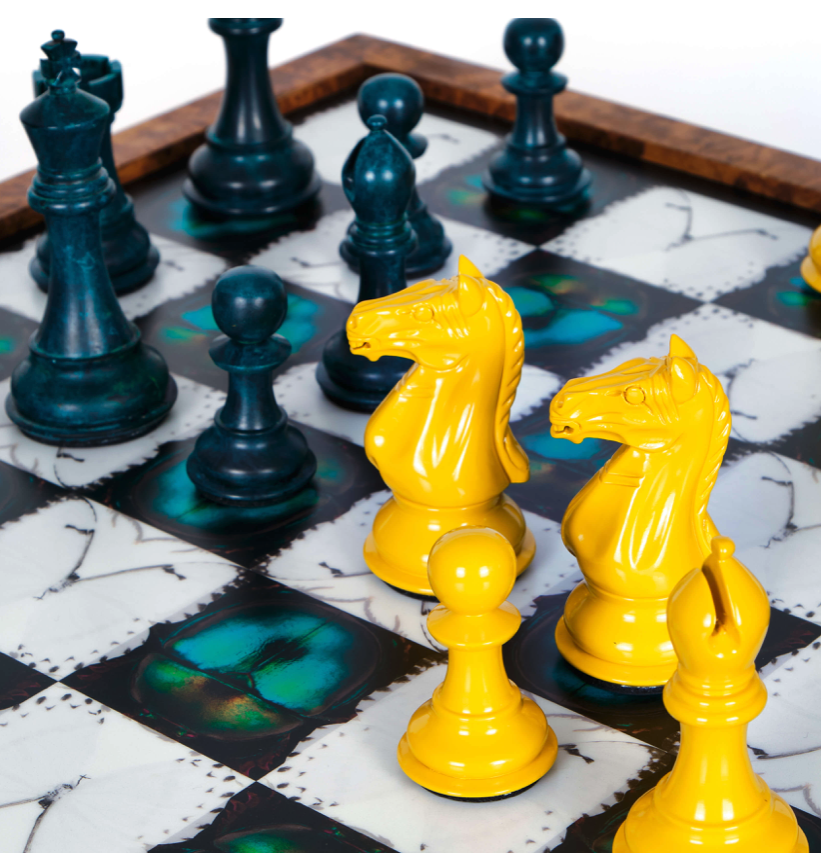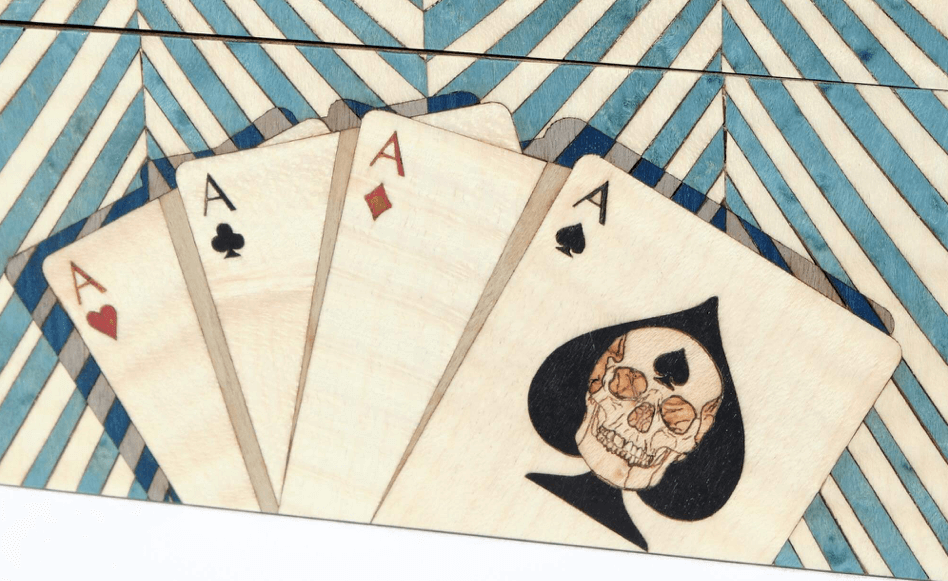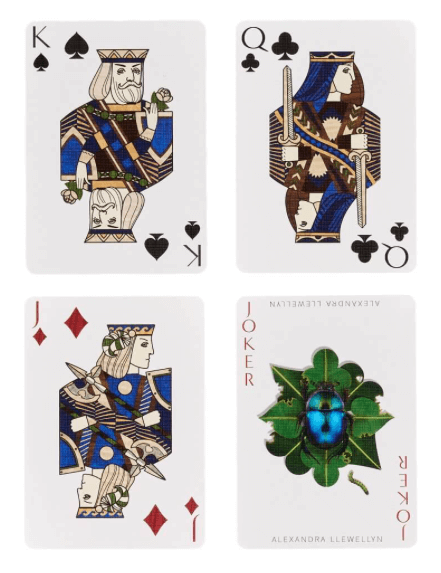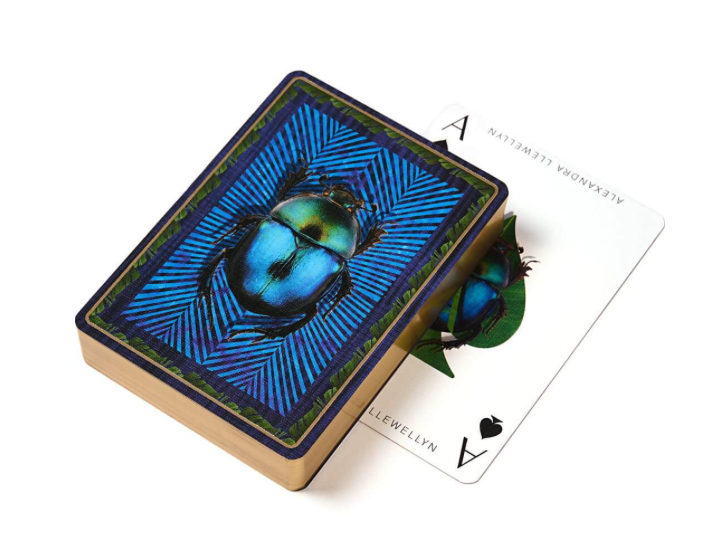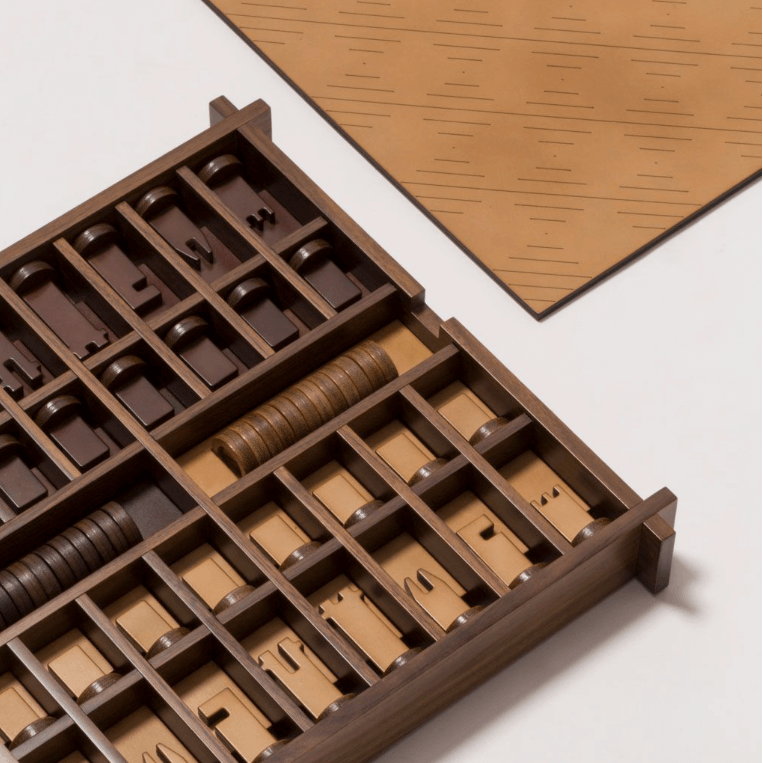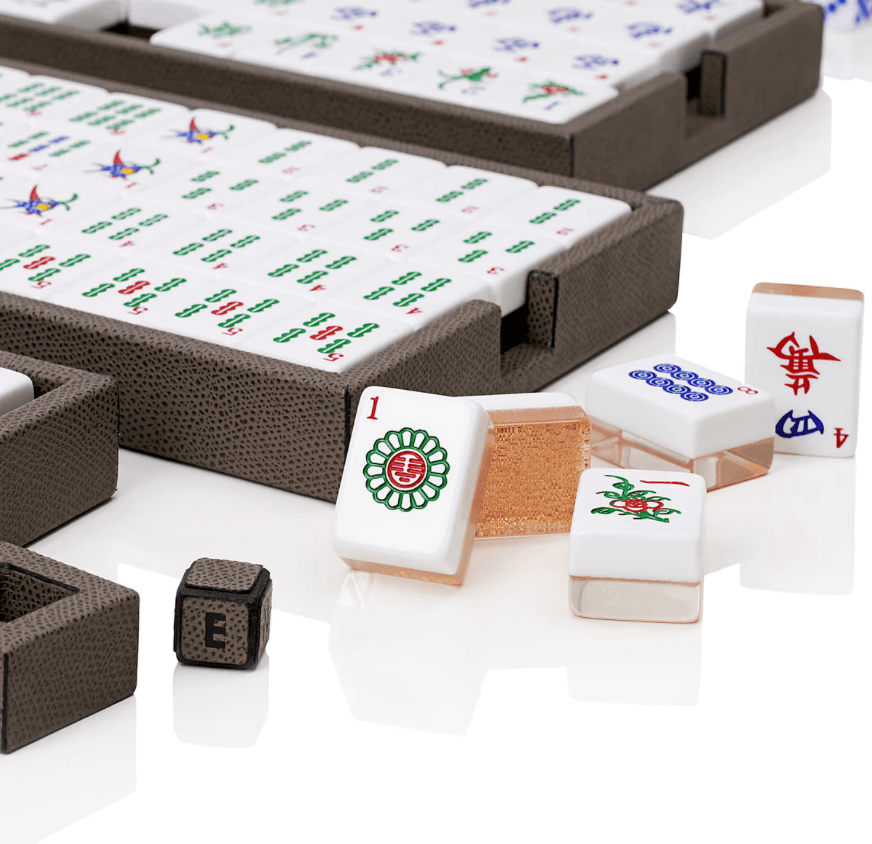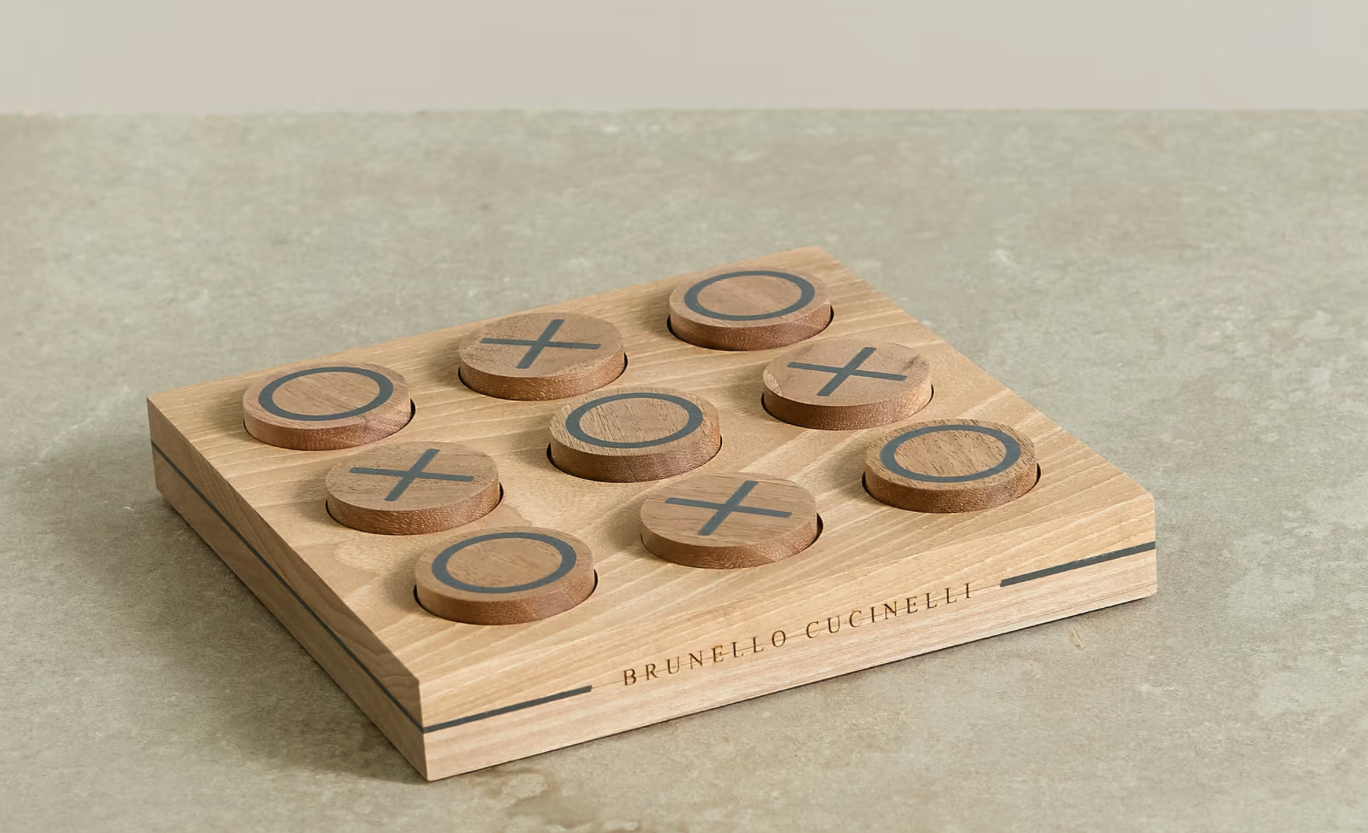Luxury Games
Where Entertainment & Artistry meet
Autumn brings a unique charm that resonates with the changing colors of the leaves, crisp air, and a sense of cosiness. During this season, board games take on a special significance, offering a delightful and meaningful way to connect with friends and family. Engaging in strategic, tactical, and problem-solving activities inherent in board games can have numerous positive effects on various cognitive functions.
With that in mind The White House has created a Luxury Games Catalogue to showcase some of the best suppliers in the luxury games market.
BACKGAMMON
Whether chosen for casual play or as a statement piece, backgammon sets come in a wide array of styles and materials, catering to diverse tastes and preferences. The combination of strategic gameplay and the visual appeal of a well-crafted set contributes to the enduring popularity of backgammon. The popularity of backgammon game can be attributed to a combination of historical significance, accessible gameplay, a blend of skill and chance, social interaction, strategic depth, versatility, a vibrant tournament culture, and the aesthetic appeal of well-crafted sets. These factors collectively make backgammon a timeless and widely enjoyed game.
CHESS
Chess is renowned for its ability to provide mental stimulation and has been recognized for centuries as a game that enhances cognitive abilities. The mental benefits of playing chess extend to various aspects of cognitive function and contribute to overall brain health. Here are some key aspects of the mental stimulation associated with chess:
Critical Thinking:
Chess requires players to engage in critical thinking and strategic planning. Each move involves evaluating the current position, anticipating the opponent's responses, and planning several moves ahead. This constant analysis hones critical thinking skills and enhances the ability to make sound decisions.
Problem-Solving Skills:
Chess is essentially a series of complex problems to solve. Players must evaluate the position of the pieces, identify the best moves, and navigate challenges presented by the opponent. This continual problem-solving contributes to the development of effective analytical and strategic problem-solving skills.
Memory Enhancement:
Chess involves remembering rules, recognizing patterns, and recalling previous moves. Players need to retain information about the positions of their own and their opponent's pieces, potential strategies, and openings. Regular chess play can help improve both short-term and long-term memory.
Concentration and Focus:
Chess demands a high level of concentration and focus. Players must pay attention to the entire board, assess threats, and remain vigilant throughout the game. This sustained concentration can have positive effects on attention span and the ability to stay focused on tasks.
Pattern Recognition:
Chess is a game of patterns, and experienced players develop the ability to recognize common patterns and themes. This skill extends beyond the chessboard and can be applied to various areas of life where pattern recognition is valuable.
Strategic Planning:
Successful chess play requires not only thinking ahead but also formulating and executing long-term plans. Players must consider the overall position on the board, devise strategies, and adapt their plans based on the opponent's moves. This strategic planning transfers to real-life situations that involve goal-setting and decision-making.
Creativity and Imagination:
While chess has defined rules, it also allows for creative and imaginative play. Players can experiment with different openings, strategies, and tactical combinations. This encourages a creative mindset and the ability to think outside the box.
Decision-Making Under Pressure:
Chess is a game with a finite amount of time for each move, especially in tournament settings. This time constraint simulates real-life situations that require quick and effective decision-making under pressure, enhancing the ability to perform well in time-sensitive scenarios.
Emotional Intelligence:
Chess involves understanding the emotions and intentions of the opponent. Recognizing patterns in an opponent's play, anticipating moves, and adapting to their strategies require a degree of emotional intelligence and empathy.
Life Skills:
The skills developed through playing chess, such as patience, perseverance, and the ability to learn from mistakes, are transferable to various aspects of life. Chess instills a mindset that values continuous improvement and learning.
PLAYING CARDS
Playing cards offer a versatile and engaging form of entertainment that goes beyond just games. It stimulates various cognitive functions and provides social, strategic, and even educational benefits. Playing cards offers a multifaceted form of mental stimulation. Whether engaging in strategic card games that challenge cognitive abilities or enjoying social card games that foster interaction, the act of playing cards provides a range of mental benefits that contribute to cognitive well-being and entertainment.
YOU MAY ALSO LIKE
Board games offer a wide array of benefits that extend beyond mere entertainment. Engaging in these games provides individuals, whether children or adults, with opportunities for cognitive, social, and emotional development. Family bonding, emotional and social development, educational value are just some of the benefits of playing board games.
BEHIND THE SCENES
The White House works with the best craftsmen on the luxury market who go beyond traditional game sets, incorporating exquisite materials and sophisticated techniques to elevate the gaming experience. Some luxury materials and techniques commonly used in the making of high-end board games including metal working, embroidery, inlay and marquetry, usage of precious metals or fine woods and hand painting.

